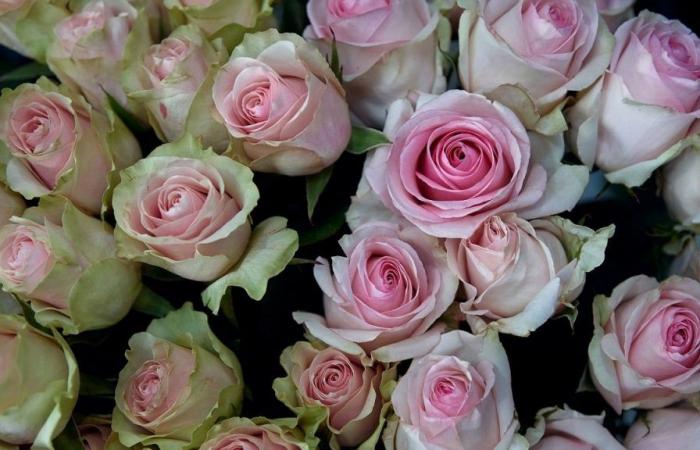As part of an investigation, a researcher had bouquets of roses from abroad analyzed. The results show the presence of pesticide residues. We reveal the hidden side of our flower bouquets.
Around 85% of cut flowers come from abroad and these are grown in ecological conditions not very favorable. If some florists prefer not to comment on the origin of the flowers they sell, others have chosen to shake things up by turning to modes of production more favorable and lasting. Hugo Clément, in an edifying investigation, had various bouquets of flowers from abroad analyzed with the aim of revealing the hidden side of the roses that we offer for Valentine’s Day or even for Mother’s Day each year.
Many bouquets sold in France contain toxic products
Where do the flowers sold in France come from?
Unlike early vegetables which indicate the origin of their fruits and vegetables, florists don’t do it for their flowers. When we go to our florist, we do not think that the flowers can have any disastrous consequences on our environment. So, to help understand where the roses we buy come from and to avoid the disappearance of certain varieties of flowers, Hugo Clément and his team went to Nicolas, a florist in Brittany, on the day of its delivery. The latter sells many more roses and 85% of this artisan’s flowers come from the Netherlands, the largest flower market in the world and whose warehouse is in Aalsmeer.
Flowers from the Netherlands
Nicolas is not the only florist who sources from the Netherlands. THE so-called eternal roses which are sold contain toxic products banned in France. The flowers are not subject to any health control upon their arrival on French territory. As a result, without knowing it, the French breathe in banned chemicals full-on when they immerse their faces in a bouquet offered or purchased. The journalist Hugo Clément had the dangerousness bouquets sold in France.
Several dangerous substances in bouquets
The specialized laboratories in France, in order not to come into conflict with their usual clients, did not agree to carry out tests on the samples of the journalist and his team. A refusal which forced the journalist to go to the Netherlands in order to be able to launch the analyses. The results were surprising. Indeed, it is in the flowers of the Monceau Fleurs brand that we noted the toxicity rate The highest. These contain approximately 14 types of dangerous products. For comparison, those of the Franprix brand had fewer toxic substances. Roses, hydrangeas or orchids, the fertilizers used for their production in Aalsmeer are not natural.
The solution: relocated and environmentally friendly production
Return to local and seasonal flowers
To close his investigation, journalist Hugo Clément suggests returning to local flowers and seasonal. A hint of hope for the journalist who confides that many consumers are ready to buy local flowers and fighters are trying to recreate an economic sector to connect horticulturists and florists in the same region. The journalist also advises consumers to turn to florists like Bernard, owner of a organic greenhouse in which pesticides are replaced by insects. The latter produces local roses with perfume natural and powerful.
Less carbon
Like him, Hortense Harang, activist for slow flower and former journalist for the BBC, put on the local production local flowers. It is a question here, for the brand Flowers from here, to recreate links between all the actors involved in the production and distribution of a bouquet of flowers. The brand also wants to make commerce possible without intermediaries in order to limit the impact of carbon and improve local distributioncan we read in the columns of radiofrance. To support the different movements, start by learning about the different florists in your area, looking for those who specialize in marketing local and seasonal flowers.
Tips for choosing your flowers
When purchasing your flowers to offer, look at the labels, as they are an important source of information that will help you distinguish the product as healthy and responsible. The label Flowers of France for example certifies that the flowers are grown in France and by artisans engaged in a ecological approach. You can also rely on certification Blue Plant which is the guarantee that plants and flowers are subject to practices that respect the environment such as reduced use of fertilizers, optimization ofwatering and more.






